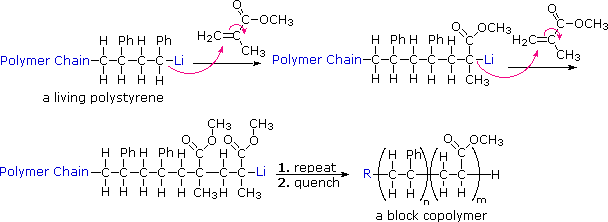Recognizing Polymers: The Science Behind Versatile Products
Recognizing Polymers: The Science Behind Versatile Products
Blog Article
Exploring the Varied Applications and Benefits of Polymers in Different Industries
Polymers, with their diverse variety of buildings and capabilities, have come to be indispensable in numerous markets, each gaining unique take advantage of their application. Polymers. From enhancing safety and performance in the auto industry to reinventing clinical gadgets in the medical care sector, polymers play a crucial function. Their eco-friendly nature is altering the landscape of sustainability practices. As we look into the midsts of polymers in electronics, we discover sophisticated advancements, while their structural stability transforms the world of building and facilities. The prevalent influence of polymers throughout markets is a testament to their adaptability and adaptability, shaping the future of countless industries.
Automotive Sector Applications
Polymers play a crucial role in improving the performance and sturdiness of numerous elements within the vehicle market. These functional materials are extensively utilized in the manufacturing of different parts, ranging from interior elements to under-the-hood applications. One popular usage of polymers in the automobile sector remains in the production of light-weight components. By changing typical steel components with polymer-based choices, vehicles can accomplish enhanced gas efficiency without compromising on strength or safety and security.

Medical Care Sector Advantages
In different health care applications, the benefits of using polymers are widely acknowledged for their varied array of helpful residential properties. Polymers play an essential duty in the medical care market because of their convenience, biocompatibility, and cost-effectiveness. Among the key advantages of polymers in healthcare is their capacity to be tailored to specific needs, such as versatility, resilience, and biodegradability, making them suitable for a vast array of clinical applications.
Polymer-based materials are extensively used in clinical devices, such as catheters, implants, prosthetics, and drug shipment systems, because of their biocompatibility and capacity to imitate natural cells. These materials can lower the risk of allergic reactions or rejections, boosting patient safety and security and end results. Additionally, polymers are light-weight, making them suitable for wearable medical devices and guaranteeing individual comfort.
In addition, polymers make it possible for the advancement of cutting-edge treatment methods, such as hydrogels for cells design and nanocomposites for targeted medicine shipment. Their ease of handling and sterilization makes them necessary for keeping high standards of health in healthcare settings. In general, the varied advantages of polymers contribute considerably to advancements in medical modern technology and patient treatment.
Environmental Benefits of Polymers

Furthermore, polymers can add to energy financial savings due to their lightweight nature. In sectors such as transportation, lightweight polymer materials can help in reducing fuel intake and greenhouse gas discharges. Furthermore, polymers can allow the development of energy-efficient products such as insulation materials that improve energy conservation in buildings.
Additionally, polymers play a vital function in decreasing water contamination. The usage of polymer-based purification systems can efficiently remove toxins and contaminants from wastewater, guarding water sources and ecosystems. Overall, the environmental benefits of polymers make them valuable properties in promoting sustainability and eco-friendly methods throughout numerous industries.
Polymers in Electronics and Modern Technology
Considering the increasing demand for ingenious and sustainable remedies in modern-day markets, the combination of innovative polymer innovations in the world of electronic devices and innovation has actually become a critical approach for driving efficiency and performance. Polymers have changed the electronics sector by allowing the production of lighter, much more adaptable, and sturdy digital tools. From mobile phones to medical tools, polymers play a critical duty in enhancing item layout and capability.
One significant benefit of polymers in electronics is their protecting buildings, which aid safeguard fragile digital elements from environmental aspects and electric disturbance. Furthermore, polymers are essential in the development of flexible display screens, wearable technology, and printed electronics, offering endless possibilities for developing smart and interconnected gadgets.
Moreover, making use of polymers view publisher site in electronic product packaging has led to improvements in miniaturization and thermal management, enhancing the total performance and dependability of digital systems. As modern technology proceeds to progress, the versatility and flexibility of polymers will undoubtedly drive further development in the electronics industry, shaping the future of modern technology.
Duty of Polymers in Building and Infrastructure
Polymers offer countless benefits in the building and construction industry due to their convenience, sturdiness, and cost-effectiveness. One vital function of polymers in building and construction is their usage in finishings and sealants, providing security versus check it out environmental aspects such as dampness, UV radiation, and rust.
In addition, polymers play an important duty in sustainable construction practices by enabling the growth of energy-efficient frameworks. Insulating materials made from polymers help control interior temperature levels, reducing the demand for home heating and cooling down systems and ultimately decreasing power intake - Polymers.
Verdict
Finally, polymers play a critical role in numerous sectors such as auto, medical care, ecological, electronics, and building. Their versatile residential properties make them useful in developing cutting-edge solutions and products. From boosting fuel effectiveness in lorries to improving clinical tools, polymers use many advantages. Furthermore, their influence on lowering waste and promoting sustainability highlights their significance in modern applications. The prevalent use of polymers demonstrates their substantial contribution to progressing technology and enhancing quality of life.
Report this page